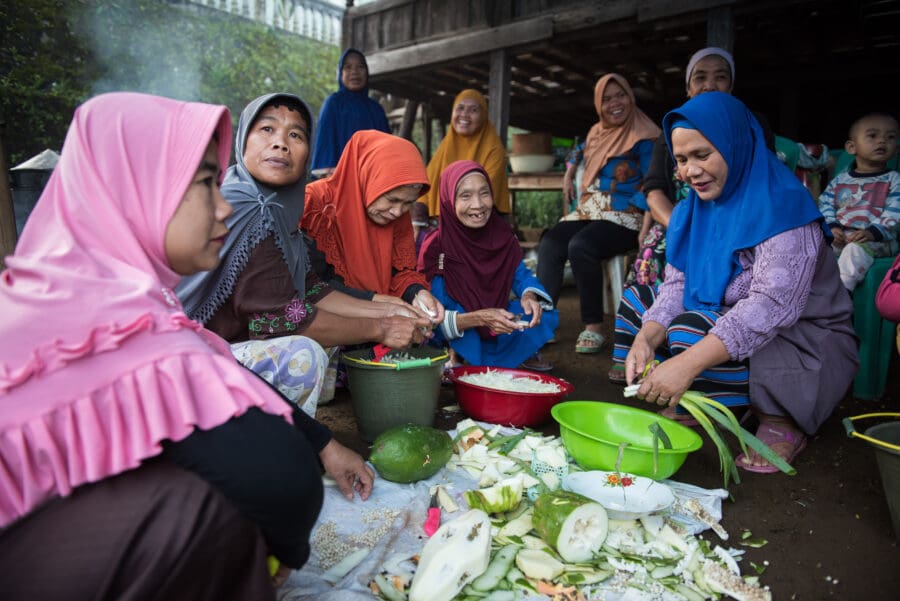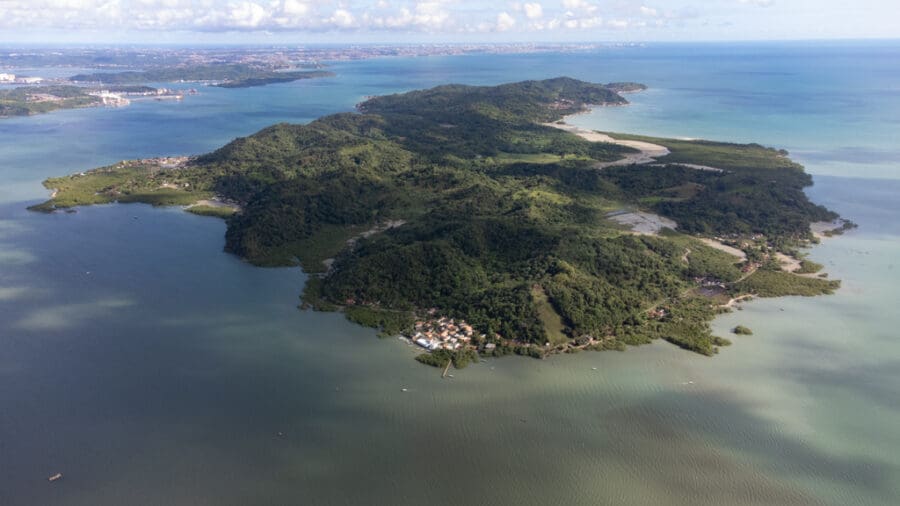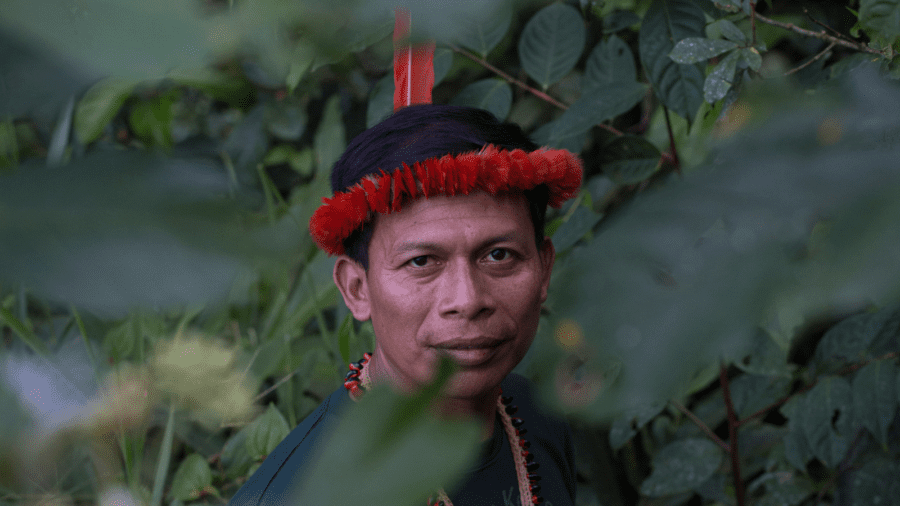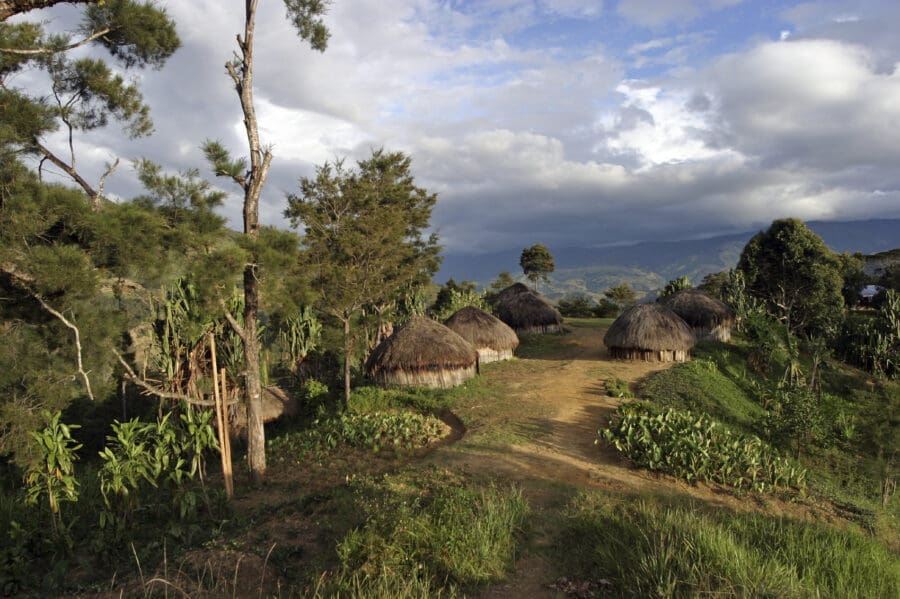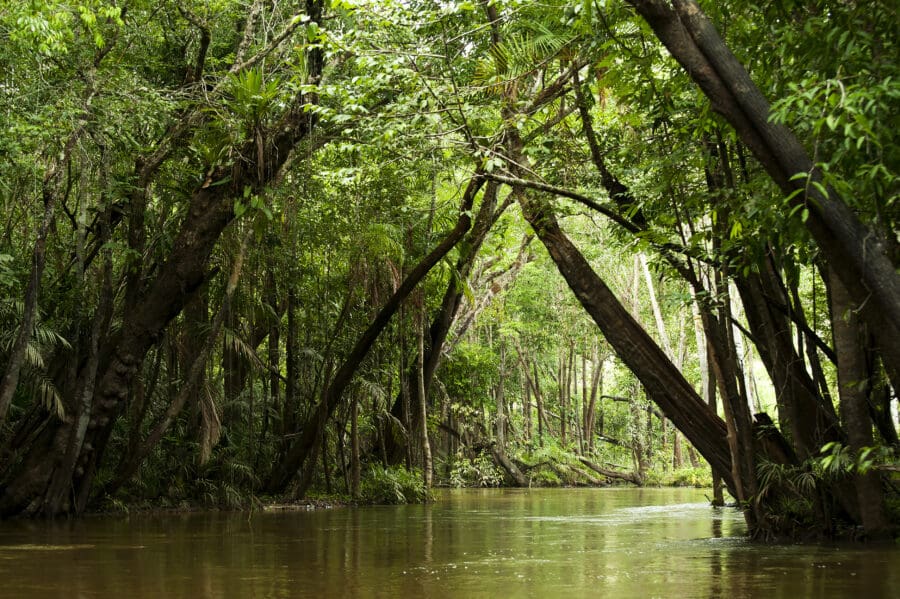This new report highlights RRI's twenty years of impact on communities’ collective land and resource rights and outlines the path forward to secure their future worldwide.
We declare that there is no solution to the climate crisis without the recognition and protection of our territorial rights. Here, we present our priority demands and urge the Brazilian Presidency of COP30 to present concrete results for the respect, recognition and protection of our territories.
A report aims to influence the localization agenda and improve bilateral policies and practices to ensure that more direct, fit-for-purpose support reaches Indigenous Peoples, local communities, and Afro-descendant Peoples and their supporting organizations to secure tenure rights and conserve key ecosystems and biodiversity.
In the lead-up to COP28, amid a growing push to restore degraded and deforested lands as natural climate solution, a new peer-reviewed study shows better outcomes when Indigenous Peoples and local communities are in charge.
The increased interest in carbon markets comes with a number of risks. Many forest carbon offsetting schemes are located in lands historically claimed, inhabited, and used by Indigenous Peoples and local communities but oftentimes the rights of these communities have not been secured, putting their well-being at risk — and threatening the future of carbon markets.
The Rights and Resources Initiative (RRI), the Global Alliance of Territorial Communities (GATC) and the Campaign for Nature (C4N) receive grant from Bezos Earth Fund to jointly scale up the recognition of tenure rights of Indigenous Peoples, local communities, and Afro-descendant Peoples in the Tropical Andes and Congo Basin.
At UNFCCC COP 26, new research shows Indigenous Peoples and local communities hold at least 958 million hectares of land in countries spanning most of the world’s endangered tropical forests – yet have legal rights to less than half of their lands. Community-held lands sequester over 250 billion metric tonnes of carbon, and lack of secure rights threatens to release much of this carbon into the atmosphere through deforestation.
Nature-Based Solutions are broadly defined as solutions to societal challenges that involve working with nature. When anchored in culturally appropriate solutions and the self-determined priorities of local peoples, nature-based actions have the potential to strengthen synergies, transform human-environment interactions, and effectively drive system-wide transformation.
A high-level discussion convened by RRI and the FCDO, UK sought to address the ownership gap in collective land rights to tackle climate change and biodiversity loss.

